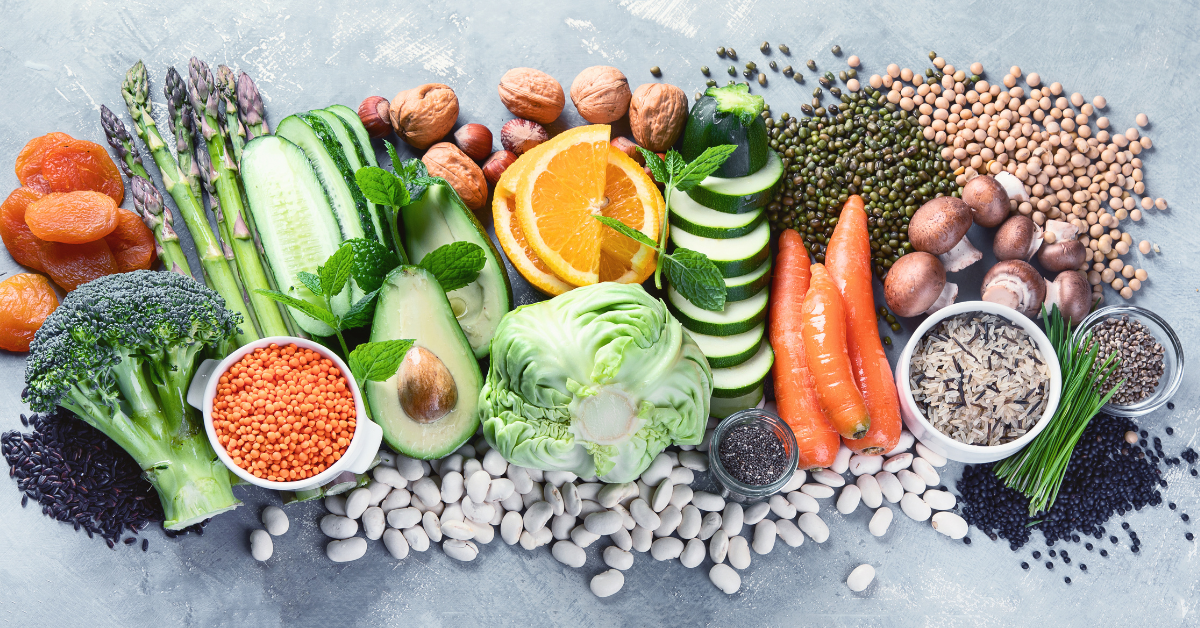In recent years, the number of people adopting vegetarian, vegan, and plant-based diets has been on the rise. While these diets are often grouped together, they actually have important differences that set them apart.
Vegetarian Diet
A vegetarian diet is a way of eating that does not include meat, poultry, fish, or seafood. However, some vegetarians do consume dairy products and eggs. Here are several categories of vegetarian diets:
Lacto-ovo vegetarian: This type of vegetarian excludes meat, poultry, fish, and seafood, but still includes dairy products and eggs.
Lacto-vegetarian: This type of vegetarian excludes meat, poultry, fish, and seafood, as well as eggs, but still includes dairy products.
Ovo-vegetarian: This type of vegetarian excludes meat, poultry, fish, and seafood, as well as dairy products, but still includes eggs.
Flexitarian: This type of vegetarian occasionally consumes meat, poultry, fish, and seafood, but primarily follows a vegetarian diet.
A vegetarian diet has several potential health benefits, including lower risks of heart disease, certain types of cancer, and type 2 diabetes. However, vegetarians need to ensure they consume enough protein, iron, calcium, and vitamin B12, as these nutrients are often found in animal products.
Environmental Impact of Vegetarian Diet
A vegetarian diet can have a lower environmental impact than a diet that includes meat. This is because meat production requires a significant amount of resources, including land, water, and feed. In addition, livestock contribute to greenhouse gas emissions, which can contribute to climate change. By reducing or eliminating meat consumption, individuals can help reduce their environmental impact.

Vegan Diet
A vegan diet is a dietary pattern that excludes all animal products, including meat, poultry, fish, seafood, dairy products, and eggs. Some vegans also avoid other animal-derived products, such as honey and gelatin.
A properly planned vegan diet can offer adequate nutrition for good health, including essential nutrients such as protein, iron, calcium, and vitamin B12. However, vegans may need to supplement their diets with vitamin B12, as it is not naturally found in plant foods.
Environmental Impact of Vegan Diet
A vegan diet can have an even lower environmental impact than a vegetarian diet. This is because it eliminates all animal products, which are often associated with high resource use and greenhouse gas emissions. By following a vegan diet, individuals can reduce their carbon footprint and help protect the environment.

Plant-Based Diet
To put it simply, a plant-based diet focuses on consuming whole, minimally processed plant-based foods. These can include a variety of foods such as fruits, vegetables, whole grains, legumes, nuts, and seeds. By adopting a plant-based diet, individuals prioritize the consumption of plant-based foods over animal-based products. This type of diet can be seen as a subset of vegetarianism or veganism, but the emphasis is on eating whole foods rather than abstaining from animal products altogether. While a plant-based diet does not necessarily exclude animal products, it places a greater emphasis on plant foods and limits animal products.
Plant-based diets can have several potential health benefits, including lower risks of heart disease, certain types of cancer, and type 2 diabetes. In addition, plant-based diets are often rich in fiber, vitamins, and minerals.
Environmental Impact of Plant-Based Diet
A plant-based diet can also have a lower environmental impact than a diet that includes a significant amount of animal products. By emphasizing plant foods, individuals can help reduce the resources required for meat production and minimize greenhouse gas emissions.
In addition to environmental concerns, there are also health considerations to take into account when choosing a plant-based diet. According to the Academy of Nutrition and Dietetics, a well-planned vegetarian or vegan diet can provide all the necessary nutrients for optimal health, including protein, iron, calcium, and vitamin B12. However, it is important to pay attention to nutrient deficiencies that may occur when eliminating certain foods, such as meat and dairy.
For example, iron is commonly found in meat products, and a deficiency in iron can lead to anemia. While iron can also be found in plant-based sources such as spinach and lentils, the body may not absorb it as easily as it does from meat. Vegans and vegetarians also need to pay attention to their vitamin B12 intake, as it is mainly found in animal products. A deficiency in vitamin B12 can cause nerve damage and anemia.

On the other hand, plant-based diets have been linked to lower rates of chronic diseases such as heart disease, diabetes, and certain types of cancer. A study published in the Journal of the American Heart Association found that plant-based diets were associated with a lower risk of heart disease compared to diets that included meat. Similarly, a review of studies published in the Journal of Geriatric Cardiology found that a plant-based diet can reduce the risk of developing type 2 diabetes.
Overall, choosing a plant-based diet can have a significant impact on both personal health and the environment. Whether you choose to follow a vegetarian, vegan, or plant-based diet, it is important to ensure that you are getting all the necessary nutrients for optimal health. It may be helpful to consult with a registered dietitian to develop a balanced meal plan that meets your individual needs and preferences.
In conclusion, there are important differences between vegetarian, vegan, and plant-based diets. While they all prioritize plant-based foods, vegetarians may include some animal products in their diet, while vegans eliminate all animal products. Plant-based diets focus on whole, minimally processed foods and exclude animal products, but may allow for occasional consumption of animal products. Environmental impact, health considerations, and personal preferences can all play a role in determining which type of diet is right for you. Regardless of which one you choose, it is important to pay attention to nutrient intake and seek guidance from a registered dietitian if necessary.
Also read about our post on How Rakuten Trade Can Help You Make Informed Investment Decisions











































